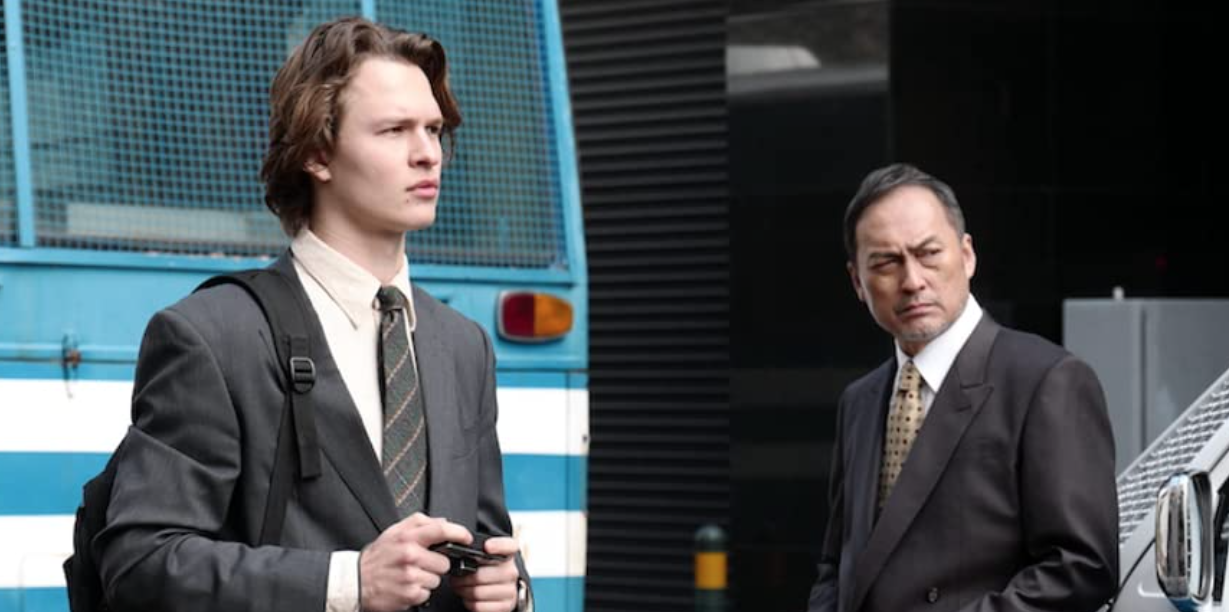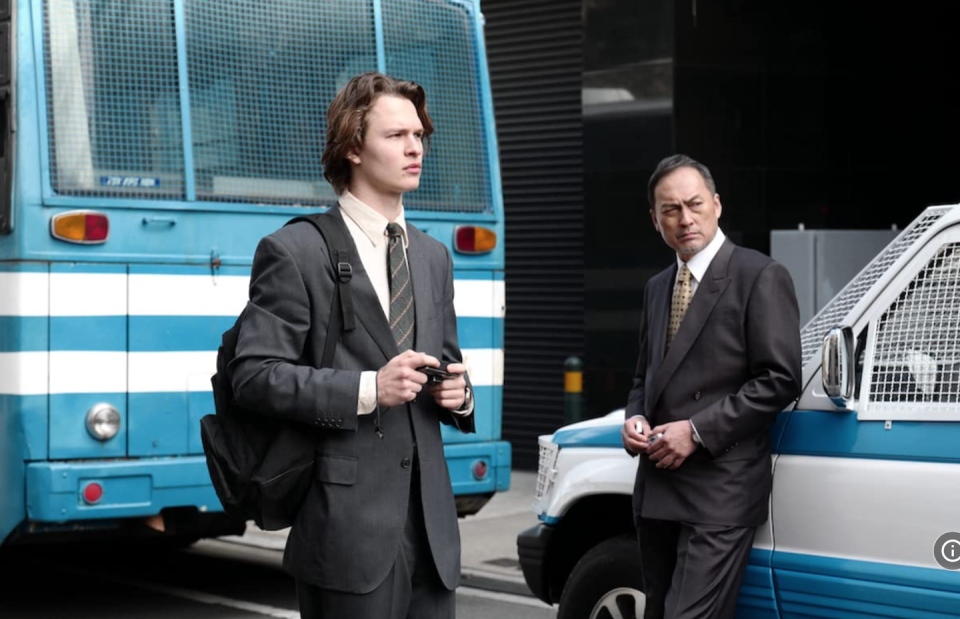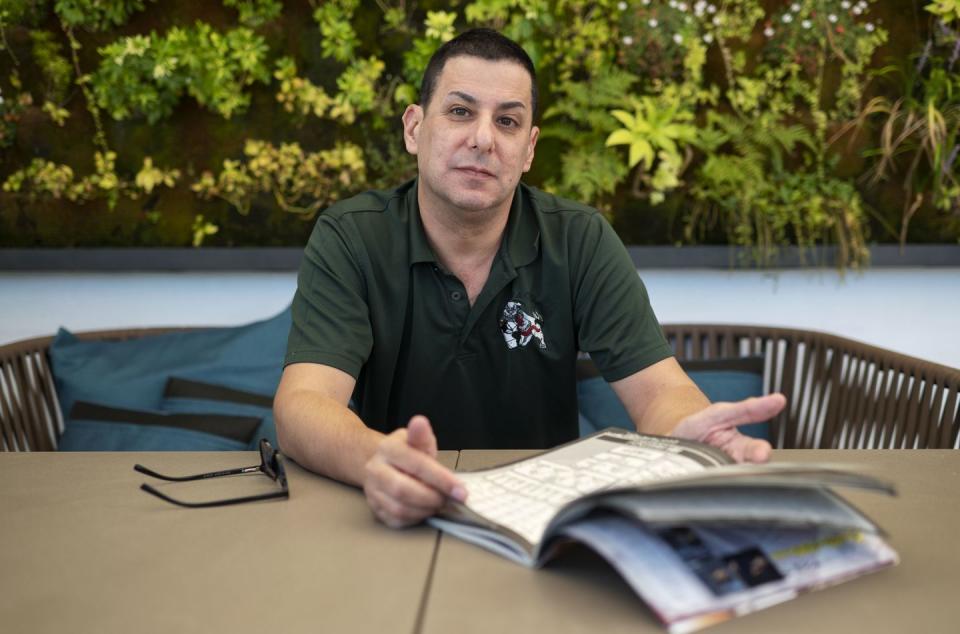The True Story Behind ‘Tokyo Vice’ Is Even Crazier Than You Think

- Oops!Something went wrong.Please try again later.
- Oops!Something went wrong.Please try again later.
- Oops!Something went wrong.Please try again later.
The story begins with a meeting, between journalist Jake Adelstein and a member of Japan’s most notorious crime syndicate, the yakuza.
At the time, Adelstein was covering crime for Japan’s The Yomiuri Shimbun, the world’s largest paper. Adesltein was the paper’s first non-Japanese reporter. His reporting on the yakuza, Japan’s organized crime network similar to groups like the Camorra and Sicilian mafia, resulted in a series of high-profile articles and later a book, Tokyo Vice. The book exposed a yakuza family boss, Tadamasa Goto, as an FBI informant, who exchanged information about his gang in order to receive a liver transplant in the United States. The meeting between Adesltein and the yakuza took the form of a warning, with the yakuza attempting to squash the Goto story before it was published. Just as the series depicts, Adelstein was threatened. The yakuza’s words, as reported by Aldestein in his book: “Either erase the story, or we’ll erase you.”
HBO Max’s recent adaptation of that story, also titled Tokyo Vice, casts Ansel Elgort as Adelstein, who is one of the series’ producers.
Adelstein worked for The Yomiuri Shimbun from 1993 to 2005, and the HBO series chronicles at least several years of this tenure, when Adelstein was reporting on the yakuza.
In a recent interview with The New York Times, Adelstein, now 53, explained how the yakuza has changed since his time as a crime reporter.
“Sure, the yakuza still exists and maintains powerful connections. But their ability to be a powerful force and their willingness to use violence has drastically diminished. Their membership ranks have shrunk from about 80,000 a decade ago to about 10,000 today. Most are in their 50s now, like me.”
In the 1990s, however, the syndicate was an omnipresent force across Tokyo. The series is set during this time.
Here’s how the HBO Max series compares to the book.
Is Tokyo Vice a True Story?

Despite drawing from source material, showrunner J.T. Rogers has insisted that the series is mostly dramatized. “Tokyo Vice is not biography, nor documentary,” Rogers said, also speaking to the New York Times in that same interview. “It’s inspired by real events, but it’s fiction.”
None of the characters, Rogers said, are meant to embody real people. (Gato does not appear in the series; Ken Wantanabe’s character is based on Tokyo detective Chiaki Sekiguchi, who mentored Adelstein, but he is not meant to be Sekiguchi.)
That said, the production wanted the series to be grounded in the reality of Tokyo at the time. While many of the characters are fictitious, Adelstein’s character is mostly taken from the book; his day-to-day reporting for the paper is not entirely dissimilar to what’s depicted in early episodes. The yakuza, too, are meant to reflect how the organization operated at the time. Rinko Kikuchi’s character, Adelstein’s editor/boss, is an aggregate of Adelstein’s various superiors over the years. She faces sexism that Kikuchi has said is authentic to the time—and continues in Japan today.
Who Is Jake Adelstein?

Josh Adelstein (later “Jake”) grew up on a farm in Columbia, Missouri. (Much of the following details are taken from Peter Hessler’s 2012 New Yorker profile of Adelstein; it’s not clear if HBO used the story as source material.) As a kid, Adelstein took up Karate in response to bullying. Karate later inspired Adelstein to study Japanese as a freshman at the University of Missouri. For his sophomore year, he went to Tokyo, transferring into a Japanese University. Once in Japan, he never left.
Within five years of studying Japanese, Adelstein took the Yomiuri Shimbun exam to become a police reporter. While he began (as most police reporters for the paper do) by covering baseball, Adelstein soon began reporting on crime. As in the HBO series, Adelstein was initially dissuaded by collogues from looking into yakuza activity. The group was not often violent, and when crimes were committed, it was not uncommon for yakuza members to turn themselves in to police.
But Adelstein began reporting on the yakuza regardless, leveraging contacts in the organization as well as the police department. Once, he was threatened and beaten by yakuza men. One of Adelstein’s long-term investigations was into one yakuza leader, Tadamasa Goto. Adelstein ran into trouble convincing the paper to publish stories on Goto, so he quit.
Adelstein continued to investigate Goto, discovering that he had received a liver transplant at UCLA (yakuza livers are commonly damaged from drug use and excessive drinking). Adelstein learned that Goto had been given a visa after making a deal with the FBI, implying that he had sold out other yakuza in exchange for the organ. Adelstein was threatened by the yakuza leading up to the story’s publication. He published the story anyway in 2008. (Goto left the yakuza and became a Buddhist priest to protect himself against retribution.)
After publication, Adelstein appeared paranoid. Hessler describes Adelstein’s demeanor and lifestyle when he visited him in 2010:
"He’s in his early forties, and he wears a trenchcoat and a porkpie hat, and he chain-smokes clove cigarettes from Indonesia. For a while, he dyed his hair bright red, claiming that this disguise would foil would-be assassins. He employs a bodyguard who doubles as a chauffeur, an ex-yakuza who cut off his pinkie finger years ago as a gesture of apology to a gang superior. Adelstein says he needs a car and a nine-fingered driver in order to avoid the subway, where a hit man might shove him in front of a train."
After leaving the paper, Adelstein worked for the U.S. State Departmtent, researching human trafficking.
During his journalistic work, Adelstein has admitted to crossing several ethical lines.
“I’ve slept with sources,” he said in his New Yorker profile. “I’ve done hard negotiations that are probably tantamount to blackmail. I’ve ransacked rubbish bins for information. I’m willing to get information from organized crime or antisocial forces if the information is good.”
Where is Jake Adelstein Now?
Adelstein still lives in Tokyo. He’s working now as an investigative journalist for The Daily Beast and Asia Times. In 2017, Adelstein became a Zen Buddhist priest. He is also working on a sequel to Tokyo Vice.
You Might Also Like

